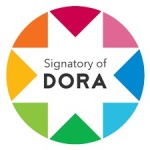ممارسات القيادة الإستراتيجية في الفنادق: دراسة تطبيقية لمجموعة فنادق جزائرية
Résumé
هدفت الدراسة إلى تشخيص وتقييم ممارسات القيادة الإستراتيجية السائدة في الفنادق الجزائرية حيث تم تبني أربعة ممارسات لـ:Hitt& all, (2001). وقد تم الاعتماد على الاستبانة كأداة أساسية لجمع البيانات الأولية من عينة عشوائية بسيطة لموظفي الفنادق الجزائرية بلغ حجمها 343 موظف من 15 فندق في 8 ولايات بكل من شمال، جنوب، شرق، وغرب الجزائر. كما تم إجراء مجموعة مقابلات مع ممثل لمؤسسة التسيير السياحي في ولاية بسكرة من أجل دعم تفسير النتائج. وقد أكدت نتائج الدراسة أن كل من الممارسات القيادية المرتبطة برأس المال البشري، الممارسات القيادية المرتبطة بالثقافة التنظيمية، والممارسات القيادية المرتبطة بالرقابة المتوازنة كانت مرتفعة، في حين الممارسات القيادية المرتبطة بالتصور الإستراتيجي المستقبلي كانت متوسطة. كما وجدت فيه فروق دالة إحصائيا حول ممارسات القيادة الإستراتيجية في الفنادق تعزى لكل من الجنس والعمر. وقدمت الدراسة مجموعة من التفسيرات والتوصيات ذات الصلة بالموضوع.
##plugins.generic.usageStats.downloads##
Références
خالد كواش. (2000). مقومات ومؤشرات السياحة في الجزائر. مجلة اقتصاديات شمال إفريقيا، العدد 1.، 213-237.
سناء طباخي. (2018-2019). دور القيادة الاستراتيجية في تنمية المعرفة- دراسة حالة مجموعة إريس سات (IRIS SAT ). رسالة دكتوراه في علوم التسيير . قسم علوم التسيير- جامعة بسكرة، الجزائر.
Khaled Kouachi. (2000). Ingredients and indicators of tourism in Algeria. North African Economics Journal, Issue 1., 213-237.
Sana Tabakhi. (2019-2020). The role of strategic leadership in knowledge development - IRIS SAT case study. PhD thesis in management sciences. Management Sciences Department - University of Biskra, Algeria
BABAITA, C. G. (2001). Leadership Style and Culture for Innovation in Hotel Industry”,. the 5th WSE As International Conference on Economy and Management Transformation, Vol. 2. (pp. 526-531). ISBN: 978-960-474-241-7: ISSN: 1792-5983.
Blayney, C. B. (2010). Leadership in the Hotel Industry : Evidence From Canada.International Journal of Management and Marketing Research, Vol. 3, No. 3. , 53-66.
Feng, F. P. (1999). Expatriate Managers in China: Selection Criteria, important Skills and Knowledge Repatriation Concerns, and Cause of failure. International Journal of Hospitality Management, Vol. 18. , 309-321.
MAT, J. .. (2008). The Influence Of Leadership Style On Internal Marketing In Retailing” . Unpublished Submitted impartial Fulfillment of the Requirement For the Degree of Doctor of Philosophy . Faculty of Management, University of Stirling.
Minett, D. Y. (2009). Leadership Styles and Ethical Decision Marketing in Hospitality Management. International Journal of Hospitality Management, Vol. 28. , 486-493.
Patiar, A. &. (2009). Transformational Leadership Style, Market Competition and Departmental Performance: Evidence from Luxury Hotels in Australia. International Journal of Hospitality Management, Vol. 28. , 254-262.
Pimapunsri, P. (2008). Factors affecting Learning Organization Culture and hotel managers’ Leadership Styles in Thailand. Educational Journal of Thailand,Vol. 2, No. 1 , 34-43.
Weerakit, N. (2007). Leadership Competencies Required for Future Hotel General Managemer’s Success in Thailand. Unpublished thesis Submitted to the Faculty of the Graduate , In Partial Fulfillment of the Re, Collge of the Oklahoma State University.
Wong, A. C. (2010). Understanding the Leadership Perceptions of Staff in China’s Hotel Industry: Integrating the Macro and Micro Aspecs of Leadership Contexts”, International Journal of Hospitality Management, Vol. 29,. ”, International Journal of Hospitality Management, Vol. 29,. , 437-447.
Worsfold, P. (1989). Leadership and Management Effecttiveness in the Hospitality Industry.International Journal of Hospitality Management, Vol. 8, No. 2. , 145-155.
Wu, T. T. (2006). A Study of the Relationship Between Manager’s Leadership Style and Organizational Commitment in Taiwan’s International Tourist Hotels. Asian Journal of Management and Humanity Sciences, Vol. 1, No , 434-452.

Ce travail est disponible sous licence Creative Commons Attribution - Pas d’Utilisation Commerciale 4.0 International.















